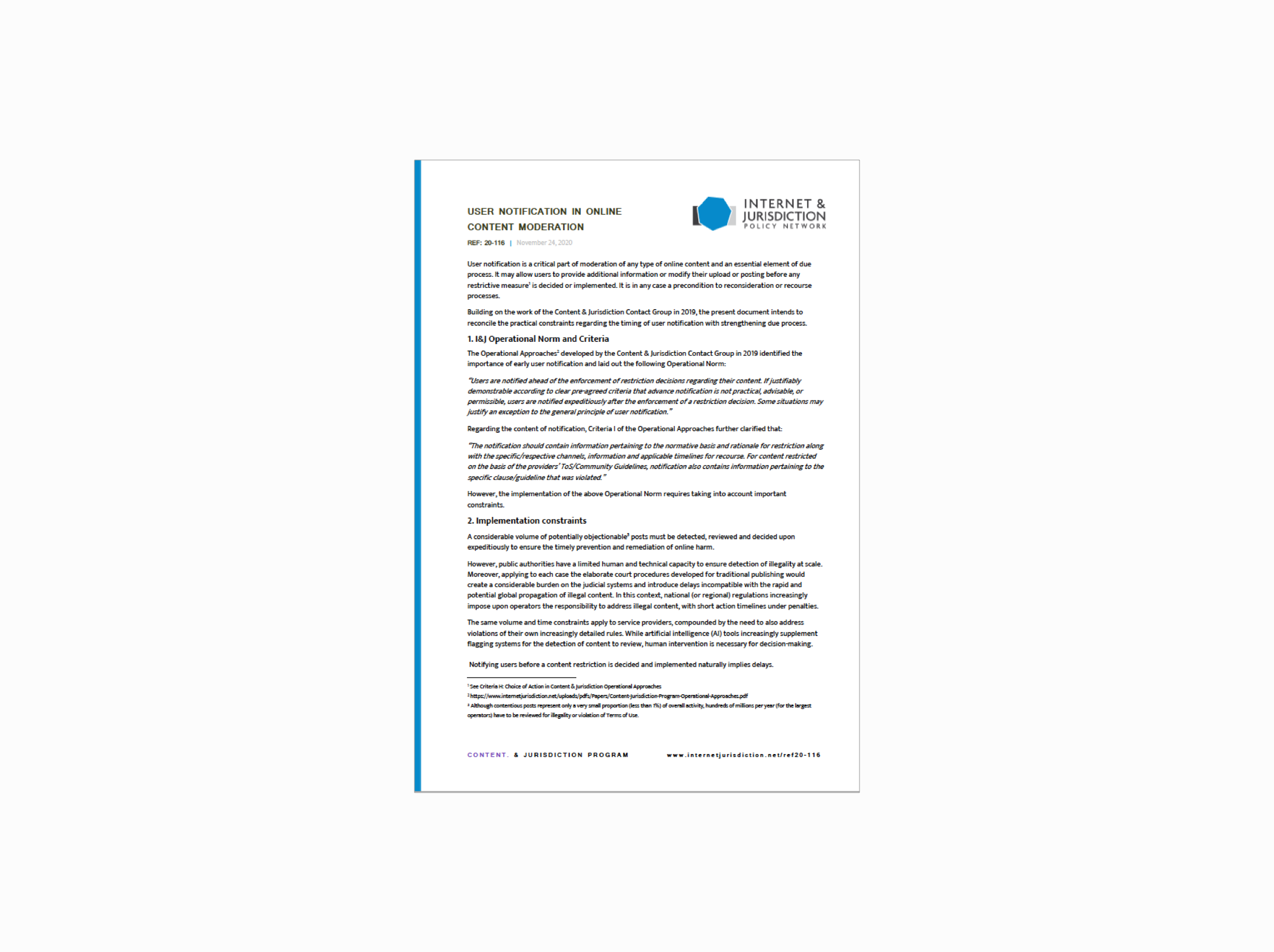Download the new I&J Outcome: User Notification in Online Content Moderation (REF: 20-116)
User generated content that is posted or uploaded on platforms managed by internet intermediaries is subject to their terms of service or other rules of that platform. Notifying users about decisions to moderate or restrict their content on a platform is not only an essential element of due process, it may also allow users to provide additional information or modify their upload or posting before any restrictive measure is decided or implemented. User notification also needs to facilitate swift action in cases where there is a risk of harm and allow for content moderation at scale.
To reconcile the practical constraints regarding the timing of user notification while strengthening due process, the Content & Jurisdiction Program Contact Group has prepared a new resource. It examines the different stages in user notification and presents ways in which user notification can be meaningfully implemented:
I&J Outcome: User Notification in Online Content Moderation (REF: 20-116)
Meet the Members of the Content & Jurisdiction Program Contact Group
This document can be useful to platform operators to ensure that their policies on user notification respect due process, provide appropriate information, give the possibility for feedback, and offer an opportunity for recourse and reconsideration. It can also help legislators and policy-makers determine procedures for dealing with different types of content.
The I&J Outcome builds on the work of Members of the Internet & Jurisdiction Policy Network’s Content & Jurisdiction Program Contact Group in 2019 where Members developed a set of Operational Approaches regarding content moderation and restrictions. The Operational Approaches identified the importance of early user notification.
The Internet & Jurisdiction Policy Network is the multistakeholder organization addressing the tension between the cross-border internet and national jurisdictions. It engages over 400 entities from governments, the world’s largest internet companies, technical operators, civil society groups, academia, and international organizations from over 70 countries.



